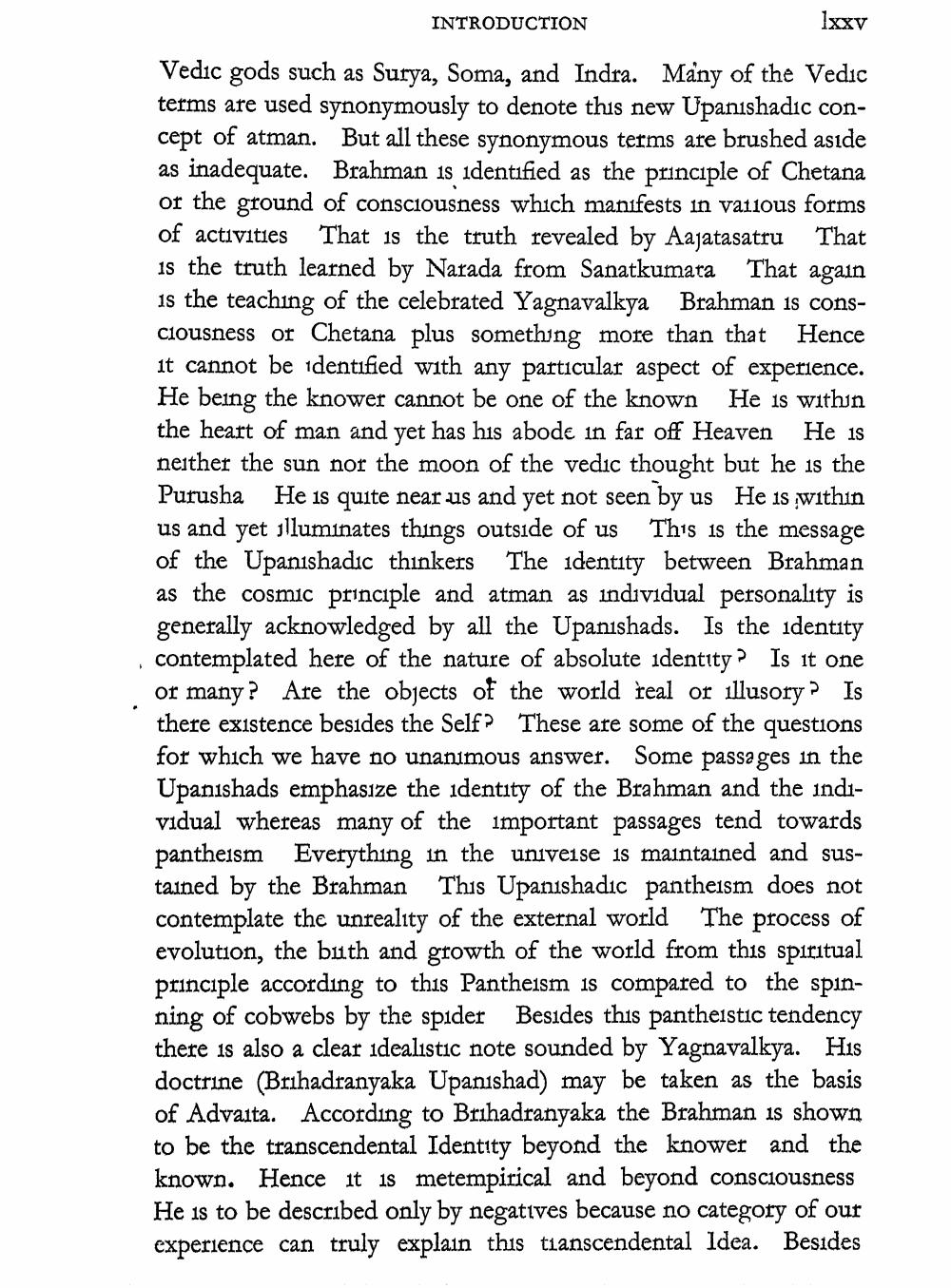________________
INTRODUCTION
lxxy
Vedic gods such as Surya, Soma, and Indra. Many of the Vedic terms are used synonymously to denote this new Upanishadıc concept of atman. But all these synonymous terms are brushed aside as inadequate. Brahman is identified as the principle of Chetana or the ground of consciousness which manifests in vaiious forms of activities That is the truth revealed by Aajatasatru That is the truth learned by Narada from Sanatkumara That again is the teaching of the celebrated Yagnavalkya Brahman is consciousness or Chetana plus something more than that Hence it cannot be identified with any particular aspect of experience. He being the knower cannot be one of the known He is within the heart of man and yet has his abode in far off Heaven He is neither the sun nor the moon of the vedic thought but he is the Purusha He is quite near us and yet not seen by us He is within us and yet illuminates things outside of us This is the message of the Upanishadic thinkers The identity between Brahman as the cosmic principle and atman as individual personality is generally acknowledged by all the Upanishads. Is the identity contemplated here of the nature of absolute identity? Is it one or many? Are the objects of the world real or illusory? Is there existence besides the Self? These are some of the questions for which we have no unanimous answer. Some passages in the Upanishads emphasize the identity of the Brahman and the induvidual whereas many of the important passages tend towards pantheism Everything in the univeise is maintained and sustained by the Brahman This Upanishadic pantheism does not contemplate the unreality of the external world The process of evolution, the buth and growth of the world from this spiritual principle according to this Pantheism is compared to the spinning of cobwebs by the spider Besides this pantheistic tendency there is also a clear idealistic note sounded by Yagnavalkya. His doctrine (Brihadranyaka Upanishad) may be taken as the basis of Advaita. According to Brihadranyaka the Brahman is shown to be the transcendental Identity beyond the knower and the known. Hence it is metempirical and beyond consciousness He is to be described only by negatives because no category of our experience can truly explain this tianscendental Idea. Besides




